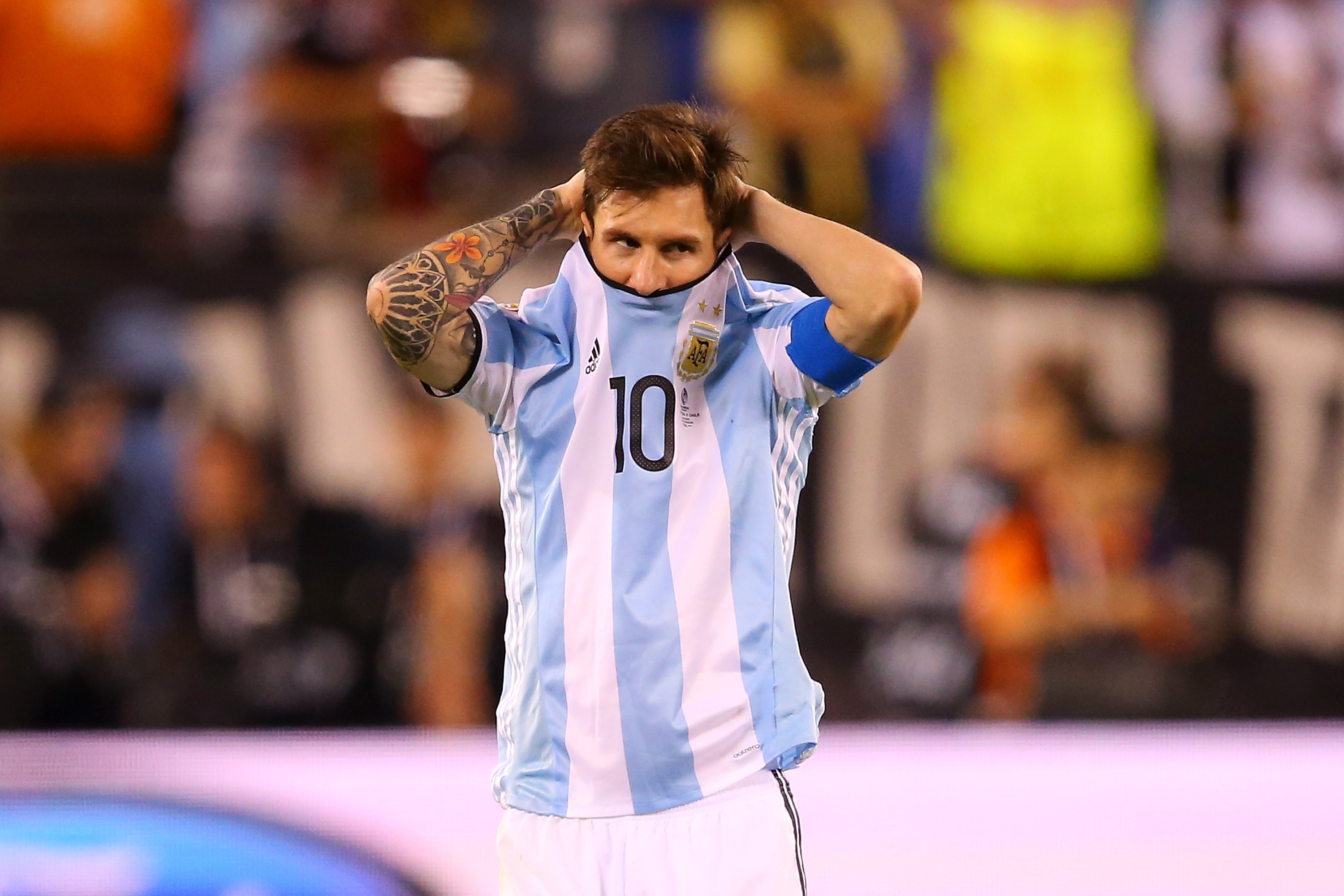
New Jersey: Lionel Messi blasted a penalty over the bar in what looks like being his last act in international football as Chile beat Argentina in a shootout to win the Copa America for the second year in a row on Sunday.
Messi cut a dejected figure after losing his third Copa America final, and fourth major final after Argentina's loss to Germany at the 2014 World Cup, and said after the match he was retiring from the international game.
"In the dressing room I thought that this is the end for me with the national team, it's not for me," the 29-year-old forward said.
"I tried so hard to be champion with Argentina. Now I am leaving without having managed it."
Striker Sergio Aguero, a second half substitute for Gonzalo Higuain, suggested he and other players might follow Messi's lead and quit the team.
"The likelihood is that Messi is not the only one that will leave the national team," Aguero, who lost his third final with Argentina, told Argentine sports newspaper Ole.
"There are several players like me that are evaluating whether or not to continue," said Aguero, who was hugely disappointed after Argentina failed to end their 23-year trophy drought at senior level.
"Unfortunately, the one that leaves most affected is Leo Messi after his penalty miss. This is the worst that I've seen him in the changing room," said Aguero, who along with Messi won an Olympic gold medal in 2008.
Best player
Chile goalkeeper Claudio Bravo, who saved Lucas Biglia's penalty before Francisco Silva scored the crucial spot-kick to help his country retain the trophy, had praise for his Barcelona team mate Messi.
"In my opinion, he is the best player in the world and in history," Bravo told Marca. "They have to enjoy him, value him and understand him."
The two sides were deadlocked 0-0 after 90 minutes and also after another half an hour of extra time in a match where both teams were reduced to 10 men in the first half.
For the second year in a row, therefore, the teams faced off in a shootout to decide who would take the biggest prize in South American soccer.
It started well for Argentina when their goalkeeper Sergio Romero got down to block Arturo Vidal's opening penalty but Messi blasted over and Lucas Biglia's spot kick was saved by Bravo.
Substitute Francisco Silva took Chile's fifth penalty and struck it low and to the right of Romero to give his country their second successive title after winning their first on home soil last year.
"We're going to enjoy ourselves," Chile coach Juan Antonio Pizzi said, before talking of his pride in his players.
"Before them today was the number one team in the world, with the best players in the world and the best player in history."
Disappointing final
The tension of the penalty shootout barely made up for a disappointing game with few memorable moments for a sellout 82,000 crowd.
The bulk of first half action involved referee Heber Lopes, who sent off Chile's Marcelo Diaz on 27 minutes for a second crude challenge on Messi, before Argentina's Marcos Rojo was given a straight red for a rough tackle on Vidal about 15 minutes later.
Three others were booked, including Messi for diving, in a first half that had as many cards as shots on goal and in which Higuain missed a good chance for Argentina.
The second half provided more of the same and although Chile, who have yet to beat Argentina in open play in 27 Copa America encounters spanning 100 years, at least managed to call Romero into action, neither side created any clear cut chances.
The 30 minutes of extra time was not much different, although Vargas came close for Chile and Aguero had a header brilliantly tipped over by Bravo.
Five-times World Player of the Year Messi, who surpassed Gabriel Batistuta as Argentina's top scorer in the semi-final against the United States, was heavily marked and had few chances to show his brilliance.
"It's not easy to explain," said Argentina coach Gerardo Martino.
"Argentina should have won that game. It hurts. There are situations we can explain football-wise and other situations that can be explained, if you will, talking about our luck."
The world's oldest international tournament was played in the U.S. for the first time to commemorate the 100th anniversary of the inaugural competition and expanded to include six teams from North and Central America and the Caribbean along with the 10 from South America